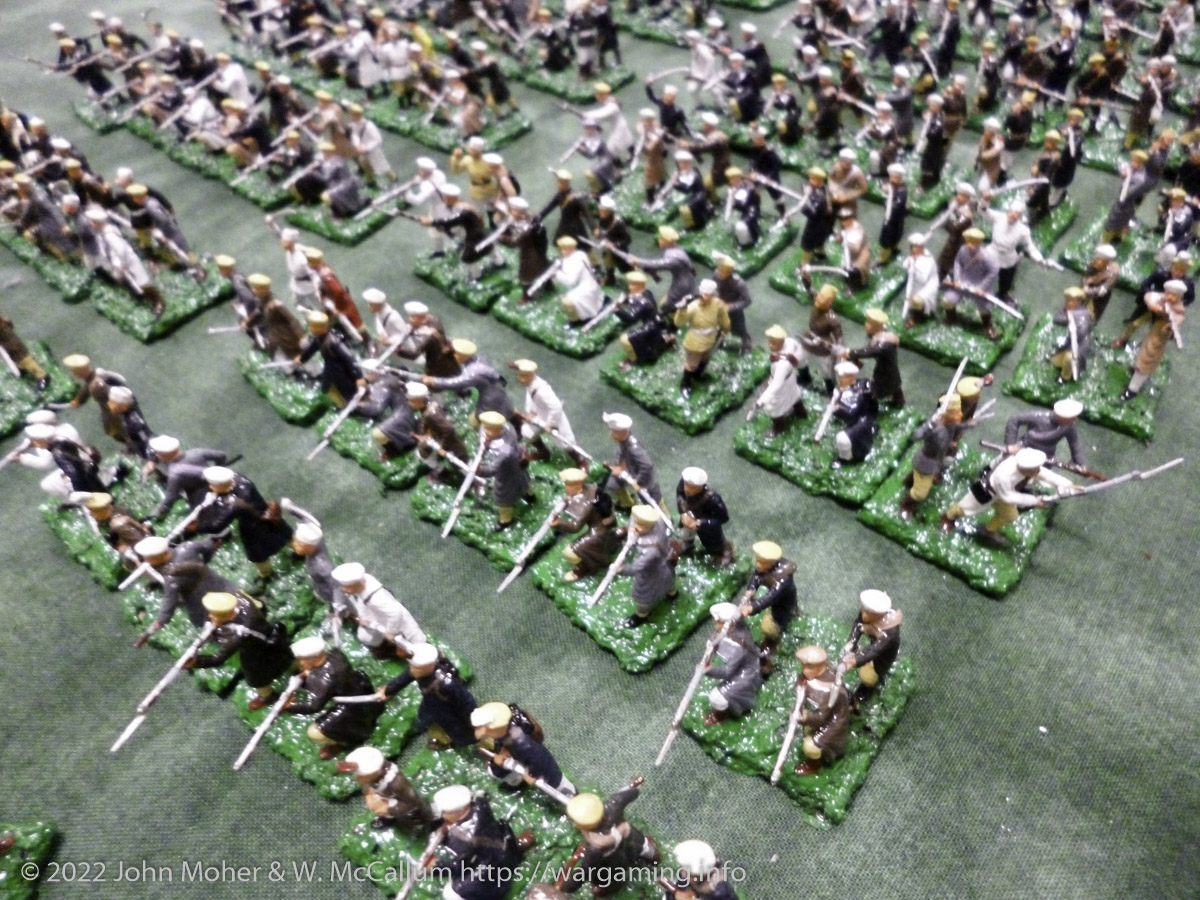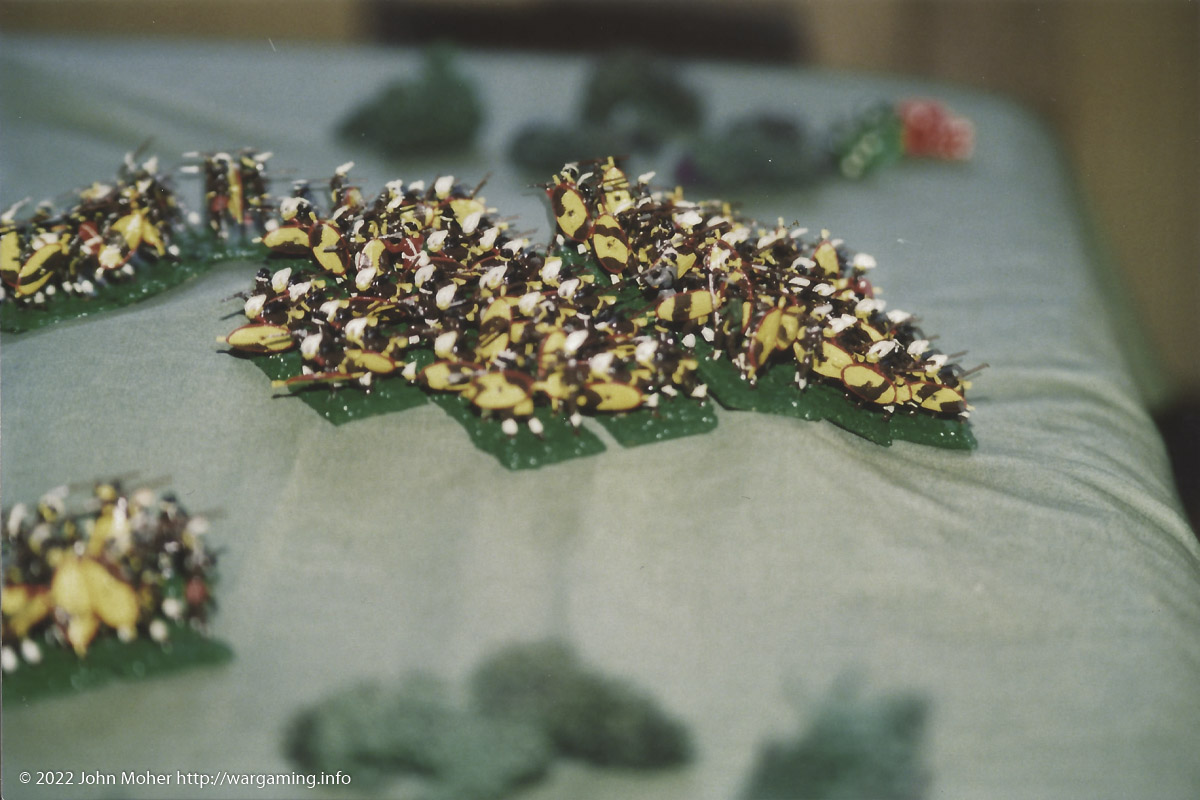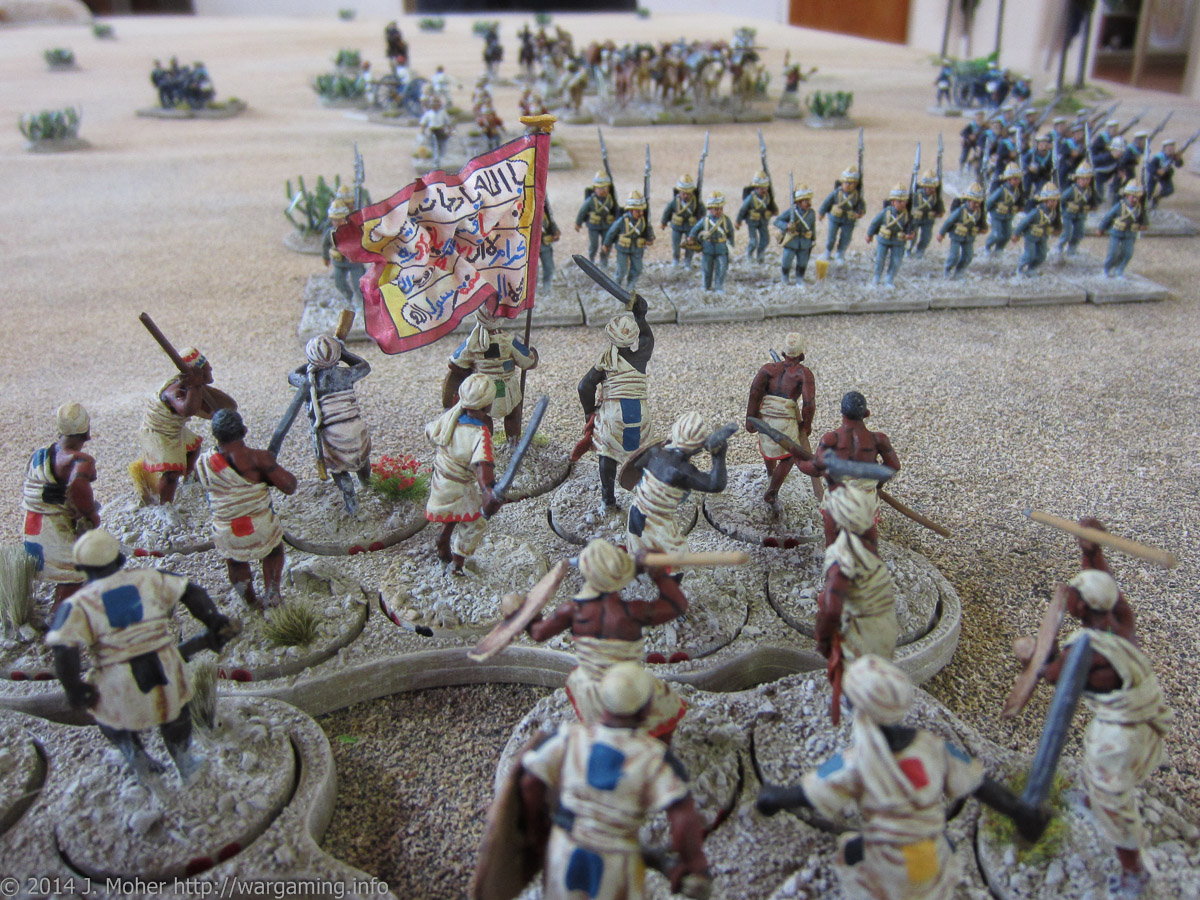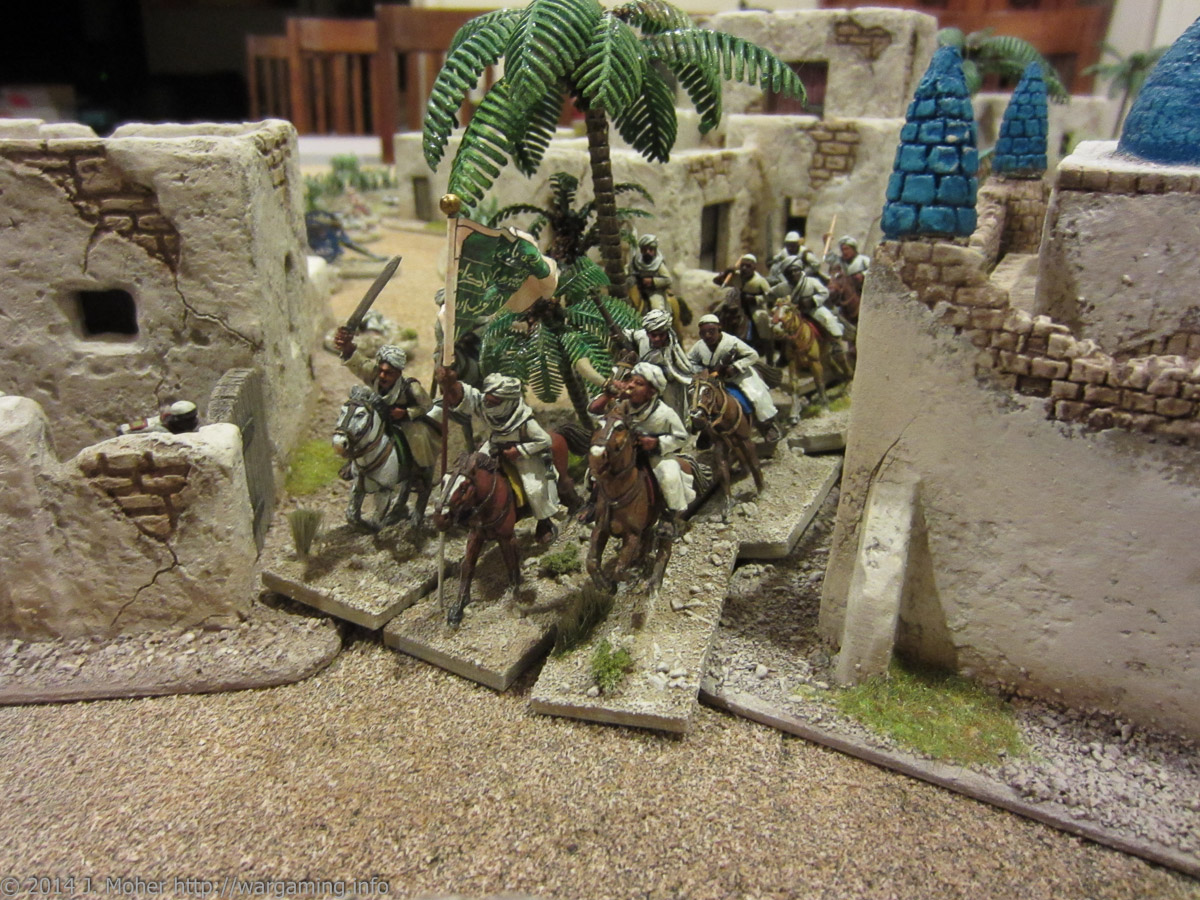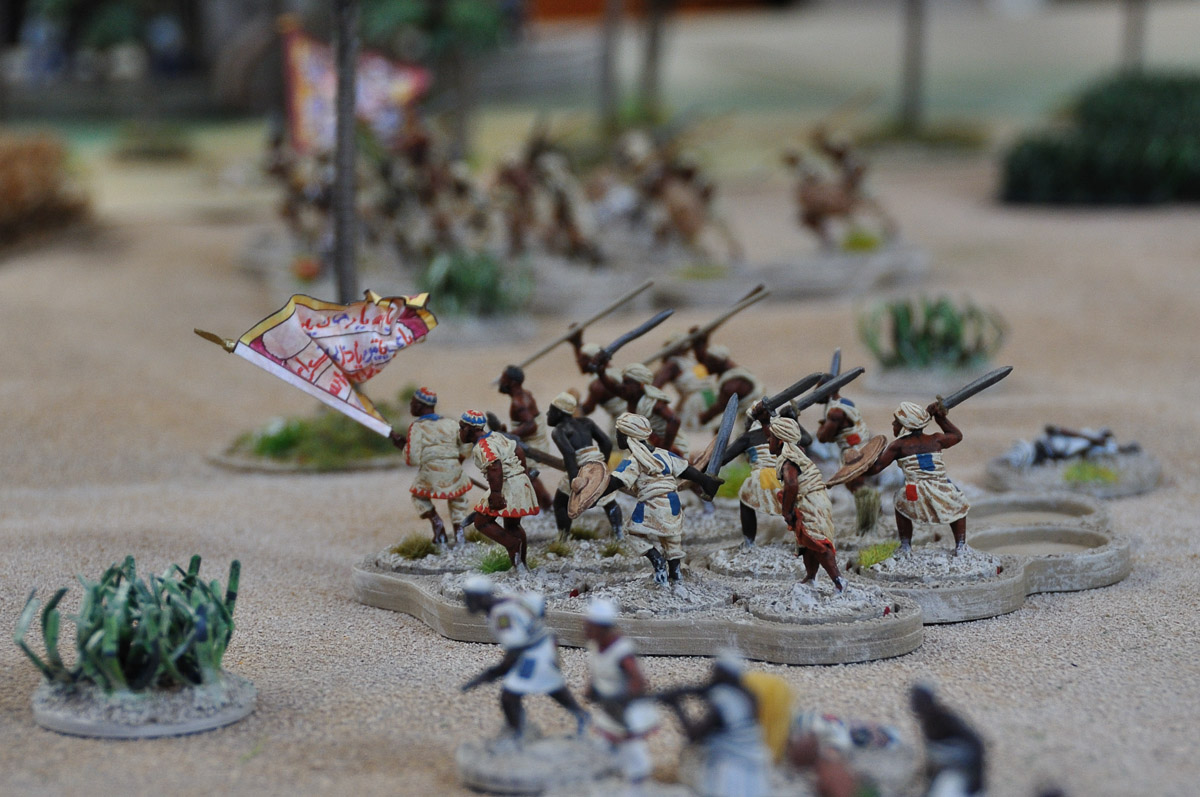Following on from my post a few days ago about some photos I had found of a colonial Anglo-Zulu War game in the mid-1980’s, my friend who provided the armies then still has them! And as it turns out recently he had had them out of their storage containers for the first time in a long while to check their condition and do a bit of a review. He even took photos, so with his generosity, here’s some photos of the full 1/72 plastic colonial wargaming army collection we used for games in the mid-1980’s through to the very early-90’s.
Continue reading “Eighties Colonial War Game Armies”Tag: Battery
Anglo-Zulu War Eighties Wargame
Recently I dug out some very old photos – some of my very first records of wargaming and they included these Anglo-Zulu War game photos played with my good friend Wayne in the mid-1980’s (probably 1985 or possibly 1986). We used 1/72 ESCI figures primarily (as their 1879 British & Zulu Figures, along with the Crimean War Russian Infantry & Artillery, had just been released). We started out with the Anglo-Zulu war (including a multi-player campaign at one point) and then expanded to the Sudan and the North-West Frontier. However this is possibly one of our very first games, and is from the Anglo-Zulu war.
Continue reading “Anglo-Zulu War Eighties Wargame”Fire & Sword Battle 06: The Gardner’s Jammed & The Yorks Vanquished
As described in Fire & Sword Turn 04: February 1884 Sir Henry’s column continued South towards Dongola, and at the 3rd Cataract is met by the first supply steamer to have made it beyond the 2nd Cataract. It resupplies his column and brings welcome reinforcements in the form of the 2nd Company, 19th Yorkshire Regiment (who are also wearing the freshly issued and newly designed Grey Serge Uniforms intended for the expedition), as well as the 1st MG Section, The Naval Brigade (operating Gardner Guns). The reinforced column is soon in Kerma and quickly continues on to Dongola, conscious of the possibility of European hostages or prisoners being held there. As it finally approaches the town Sir Henry is surprised with a sudden onslaught by the defending Dervish forces!
Continue reading “Fire & Sword Battle 06: The Gardner’s Jammed & The Yorks Vanquished”Fire & Sword Battle 05: Because We’re ‘ere Yuzbashi! Nobody Else. Just Us.
Akhtar Pasha had just spent the last few weeks trekking along the caravan trail from Suakin to Berber. When he left Suakin the Eastern Sudan was quiet and unchanged despite the violent rebellion raging in Northern & Southern Sudan – however things had now changed, the Eastern Sudan had erupted into rebellion behind him and he was now deep in enemy territory, with a column of troops in need of water and supplies, and lacking any mounted force for reconnaissance or foraging! Akhtar’s plan was to march rapidly on Berber, this was the closest reasonable sized town that was both likely to have plentiful stocks of supplies, and be fortifiable once occupied – but it was also small enough that hopefully it would not have a strong Mahdist rebel presence, and they would not have heavily fortified the place thereby making access impractical. Around the middle of February Akhtar Pasha’s force arrived at Berber, and prepared to assault the town…
Continue reading “Fire & Sword Battle 05: Because We’re ‘ere Yuzbashi! Nobody Else. Just Us.”Fire & Sword Battle 04: Sally at Abu Hamed
As referred to in Revolt in the Sudan Turn 03: January 1884, at Abu Hamed Sayed Bey decides to sally forth from the town and endeavour to temporarily break the siege. While Abu Hamed is now plentifully supplied with resources (it has over 6 months of supplies on hand) Sayed Bey determines to take the opportunity to procure more, and while he has a relatively fresh & strong force available to hopefully inflict a defeat on the local Mahdist forces. Unbeknown to Sayed Bey, he sallies forth only two days after Sir Henry’s victory over the Dervish force at Baqah al-Garbiyyah Oasis, intent on breaking the siege of Abu Hamed…
Continue reading “Fire & Sword Battle 04: Sally at Abu Hamed”